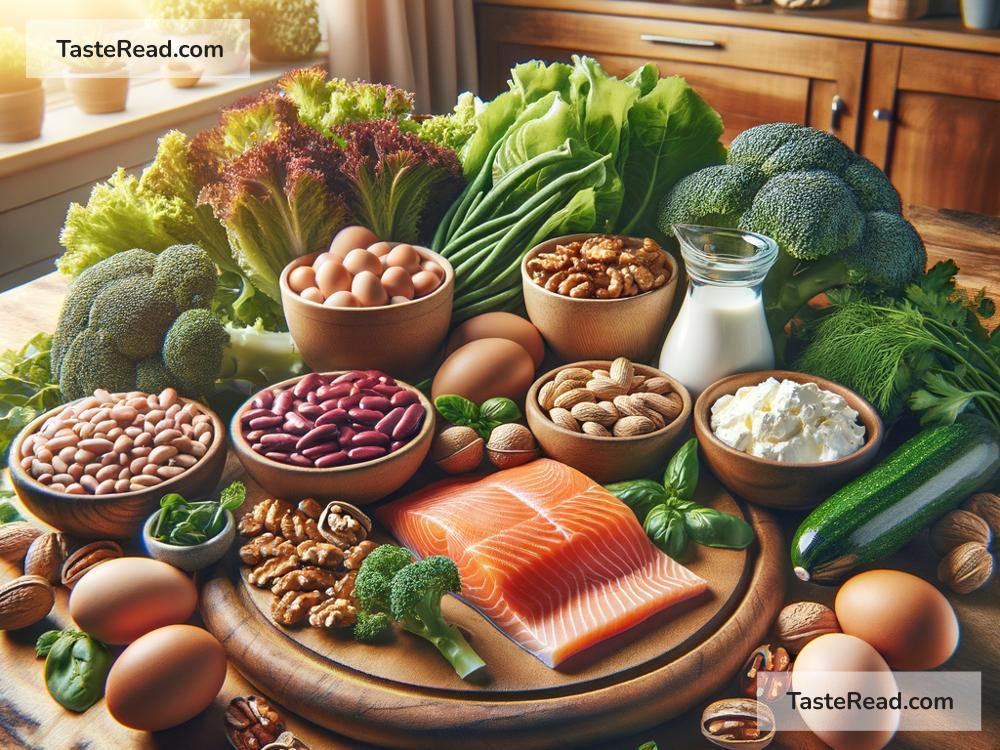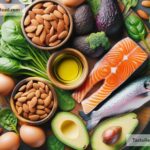Foods That Improve Nitrogen Balance: Eating Healthy for Stronger Bodies
When it comes to staying healthy, most people think about vitamins, minerals, or counting calories—but have you ever heard of nitrogen balance? It’s a lesser-discussed topic, but it’s critical for building muscles, repairing tissues, and keeping your body strong. Nitrogen balance is an idea related to protein in your diet, and choosing the right foods can help you maintain or improve it. Here’s everything you need to know about nitrogen balance and the foods that support it, explained in simple terms.
What Is Nitrogen Balance?
First, let’s talk about nitrogen. Nitrogen is an important part of protein, which is found in all living things. When you eat foods rich in protein, your body uses that protein to build and repair muscles, tissues, and other cells. The balance between how much nitrogen your body takes in (from food) and how much it loses (from processes like sweating, urinating, and natural cell breakdown) is called “nitrogen balance.”
There are three types of nitrogen balance:
1. Positive nitrogen balance: You’re taking in more nitrogen than your body is losing, which is great for growing muscles, recovering from injuries, or building strength.
2. Negative nitrogen balance: You’re losing more nitrogen than you’re taking in. This often happens when your diet is lacking in protein or during times of stress, illness, or extreme dieting.
3. Neutral nitrogen balance: Your nitrogen intake equals what you lose—a stable state.
For overall health, fitness, and strength, it’s best to aim for a positive nitrogen balance. This means eating enough protein-rich foods that your body can use to thrive.
Which Foods Help Improve Nitrogen Balance?
To maintain a positive nitrogen balance, you need to focus on foods packed with protein and nutrients that help your body process it. Here are some of the best foods to include in your diet:
1. Lean Meats
Meat is one of the richest sources of high-quality protein, which is excellent for maintaining nitrogen balance. Opt for lean cuts to keep your meals healthy. Some good choices are:
– Chicken breast
– Turkey
– Lean beef
– Pork loin
These foods are not only high in protein but also contain essential nutrients like iron and zinc that help your body function well.
2. Fish and Seafood
Fish is another great option for boosting nitrogen balance. It’s packed with protein and also supplies healthy omega-3 fats, which support heart and brain health. Top options include:
– Salmon
– Tuna
– Cod
– Shrimp
Fish is especially good for people looking to balance protein intake with healthy fats.
3. Eggs
Eggs are often called nature’s “perfect food” because they are loaded with high-quality protein and essential nutrients. Plus, they’re versatile—you can boil them, scramble them, or use them in recipes to suit your taste. Even if you’re on a budget, eggs are a convenient way to improve your nitrogen balance.
4. Dairy Products
Milk, cheese, and yogurt are excellent nitrogen-boosting foods because they are rich in protein and amino acids. For a healthier option, choose low-fat or fat-free products. Greek yogurt, in particular, is a super-protein food you can eat as a snack or use in smoothies.
5. Plant-Based Proteins
Plant-based diets can also support positive nitrogen balance. If you don’t eat meat or dairy, these are excellent alternative protein sources:
– Lentils
– Chickpeas
– Black beans
– Tofu
– Tempeh
– Quinoa
These foods contain vital amino acids that your body needs for growth and repair.
6. Nuts and Seeds
Almonds, walnuts, chia seeds, sunflower seeds, and peanuts are protein-rich snacks that contribute to nitrogen balance. They also provide healthy fats and fiber that keep your energy steady.
7. Whole Grains
Whole grains like oats, brown rice, and quinoa contain protein and essential amino acids. Pair them with beans or lentils for a complete protein meal that’s especially good for vegetarians and vegans.
How Much Protein Do You Need?
Not everyone needs the same amount of protein—it depends on factors like age, activity level, and health goals. Generally, the average adult needs about 0.8 grams of protein per kilogram of body weight. However, if you’re aiming for muscle growth, recovering from an illness, or engaging in intense workouts, you may need closer to 1.2–2.0 grams per kilogram. It’s important to eat a mix of protein-rich foods throughout the day to stay in positive nitrogen balance.
Other Tips for Supporting Nitrogen Balance
Of course, improving your nitrogen balance is not just about eating more protein—it’s about eating right and taking care of your body. Here are a few additional tips:
– Stay hydrated: Water helps your body process protein efficiently.
– Get enough sleep: Repair and growth happen during sleep, so make sure you’re resting well.
– Pair protein with carbs: Carbs give you energy and help your body use protein better.
Final Thoughts
Maintaining a positive nitrogen balance is essential for building and repairing your muscles, keeping your body strong, and staying healthy. Luckily, there’s an abundance of tasty and nutrient-packed foods—like lean meats, fish, eggs, beans, and nuts—you can enjoy to improve it. Build your meals around these protein-rich options, and you’ll be on the right track to a stronger body and better overall health. Remember, healthy eating is all about balance, so don’t forget to add colorful fruits and vegetables to round out your meals!
Eating well doesn’t have to be complicated—focus on whole, natural foods, and listen to your body. It’s that simple!


